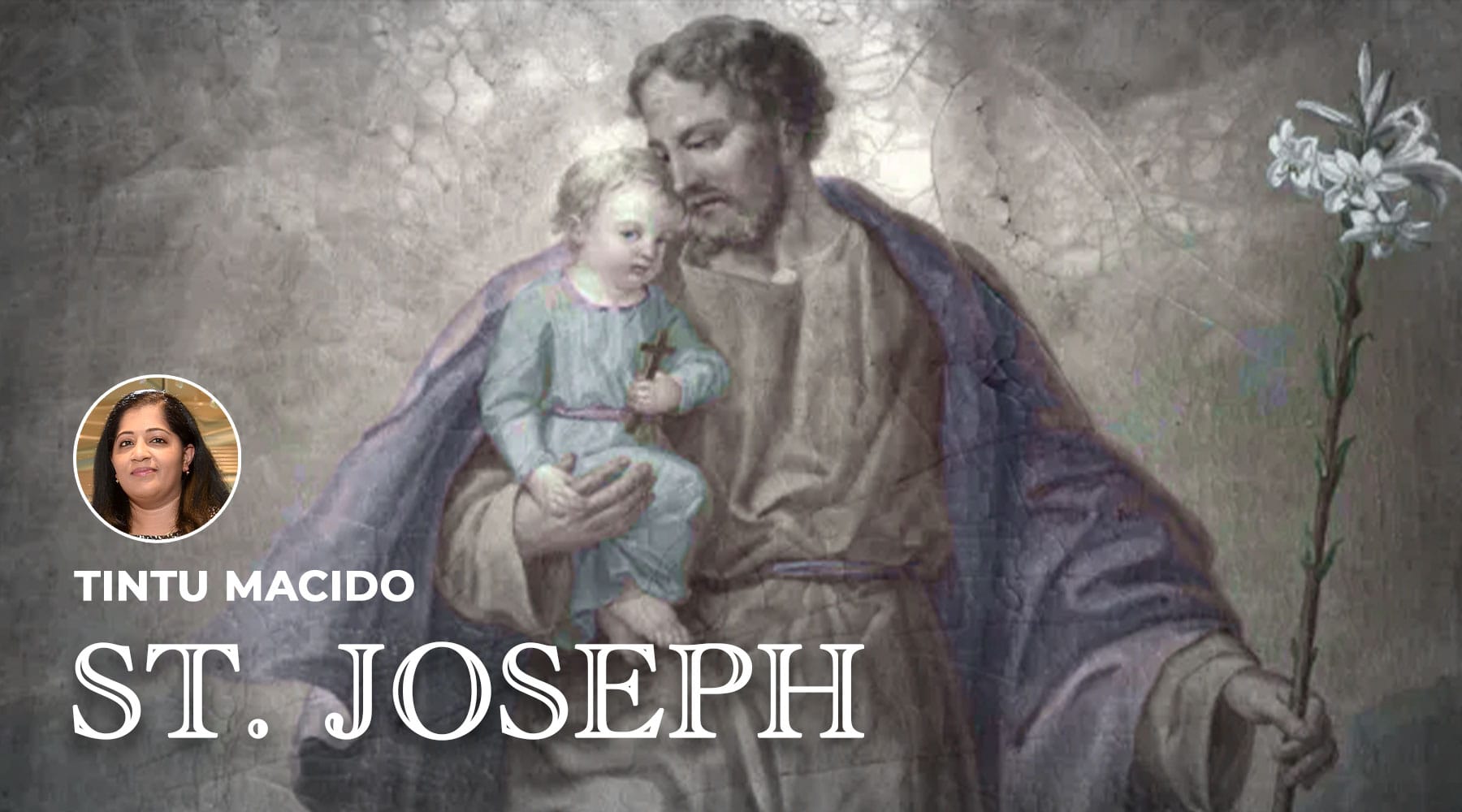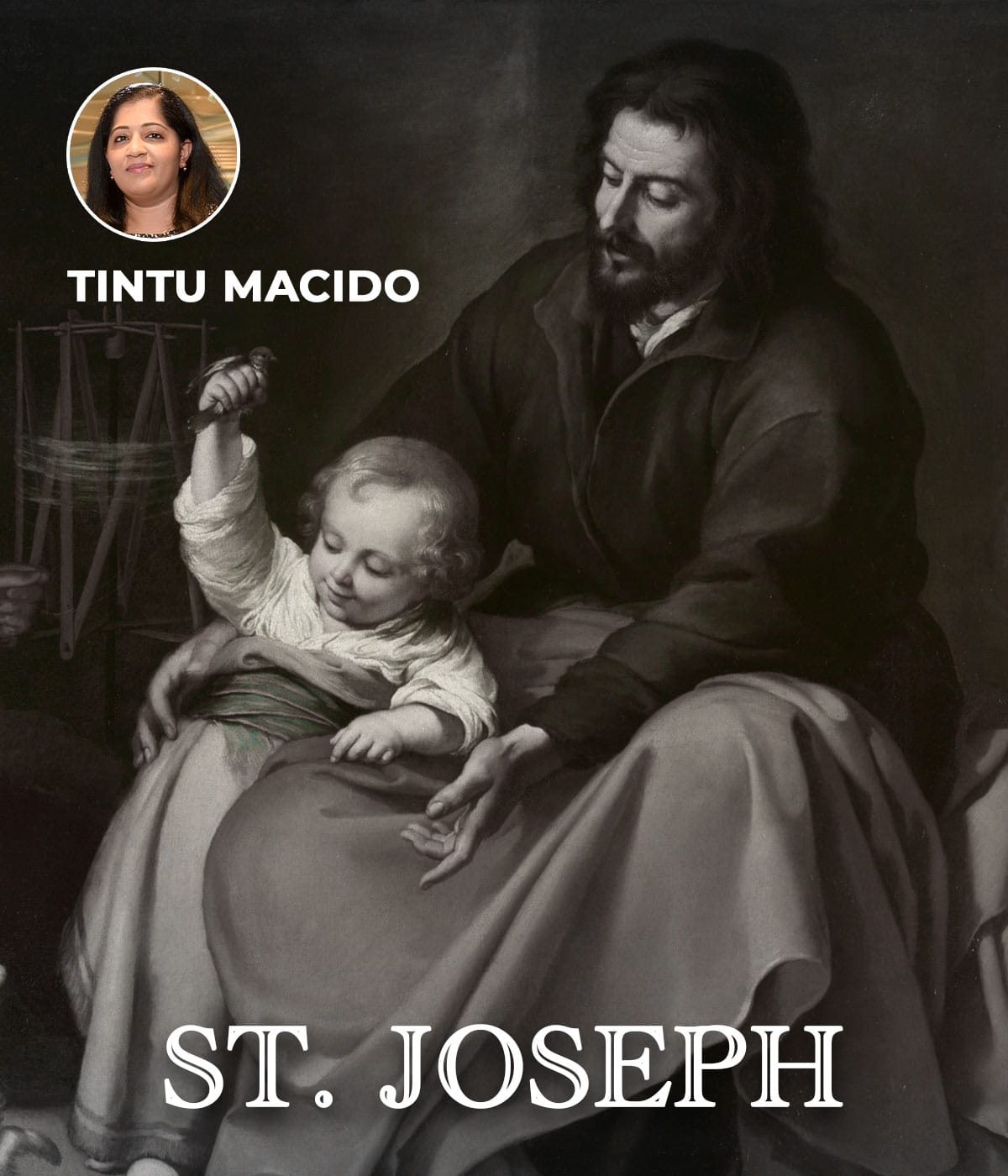

The Universal Church devotes the month of March to St. Joseph, and it is a time to learn more about this saint. St. Joseph, spouse of the Blessed Virgin Mary, was the foster-father of our Lord Jesus Christ. St. Matthew’s Gospel mentions him as a “Just man” (Matthew 1:19) keen to fulfill God’s will. St. Joseph faithfully obeyed God when he was told in a dream to take Mother Mary to be his wife. He took Mother Mary as his wife and stood beside her as a faithful spouse taking paternal responsibility for the son, whom she did conceive by the power of the Holy Spirit. The name ‘Joseph’ in Hebrew means “to add” or “to increase.” Just like his name signifies, St. Joseph, by his deeds and words, always “increased” the glory of Jesus and Mother Mary on the Earth. He reminds us that God calls us to share the blessings that he has given us with those who live with far less than we do. St. Joseph guides us to be compassionate and caring to our fellow beings.
Just man
In 1870, Pope Pius IX named St. Joseph to be the patron of the Universal Church. St. Joseph’s role on Earth was to protect, guide, and love Mother Mary and Jesus. Just like St. Joseph protected the Holy Family (the first true Christian Church), we can rely on him to protect the Universal Church, today. Pope Francis explains in his series of catechesis on St. Joseph that in the same way St. Joseph protected the Holy Family, “so too, he continues to love and protect the Body of Christ, which is the Church, as well as the poor, the sick, and dying whom the Lord calls the least of his brothers and sisters.” Just like St. Joseph, we too must love and protect the Church. St. Joseph is also the patron saint of families, fathers, craftsmen, travelers, unborn children, and the immigrants.
So too, he continues to love and protect the Body of Christ, which is the Church, as well as the poor, the sick, and dying whom the Lord calls the least of his brothers and sisters.
The feast of St. Joseph is celebrated on March 19th. Since St. Joseph does not appear in Jesus’ public life, at his death, or resurrection, traditionally it is believed that St. Joseph probably had died before Jesus entered his public life. Many historians assume that during the final hours of St. Joseph’s life, Jesus and Mother Mary were alongside him, holding his hand and reminding him to trust in God, the way we all would like to leave this Earth. As the patron of a happy death, St. Joseph will be with those who call upon him, in their final hours of need to comfort, to protect, and to intercede for them before his most beloved Son. St. Alphonsus Liguori said: “Since we all must die, we should cherish a special devotion to St. Joseph that he may obtain for us a happy death.”
Since we all must die, we should cherish a special devotion to St. Joseph that he may obtain for us a happy death.
In 1955, Pope Pius XII instituted the feast of St. Joseph the Workers’ Day to be celebrated on May 1. This is also May Day (International Workers’ Day). St. Joseph is a perfect example for the workers today. St. Joseph used the talents God gave him and worked hard as a carpenter. In doing so, he not only supported his Holy Family, but also served those who needed his help. As a patron saint of workers, St. Joseph teaches us the value and joy of our daily work and how it should exist to glorify God, support our families, and contribute to society. With St. Joseph as our guide, through our honest work, using the gifts and talents that God gave us we can help to build God’s kingdom and be the co-creators with God.
Many of us know about the Sleeping Statue of St. Joseph and Pope Francis’ life experience related to this. Pope Francis had a sleeping statue that he held close for many years in his home country, Argentina. When he was elected as the Pope, he brought this Sleeping Statue to theVatican. The Pope has explained that whenever he faces a problem or has a special intention, he would write down the problem or prayer and keep it under the Sleeping Statue of St. Joseph. He asserts that St. Joseph takes care of the problem while the Pope rests. As such, many Catholics around the world have adopted this tradition of praying to the Sleeping Statue of Joseph. By venerating the Sleeping Statue of St. Joseph, we acknowledge that St. Joseph will manage our problems while we rest.
The dreams of St. Joseph were not for his personal benefits, but for fulfilling the wishes of God on Earth and upholding humanitarian values. In this world that is full of fantasies and temptations, let us follow the footprints of St. Joseph who was hardworking, honest, and obedient to God’s plans. St. Joseph showed his faith by obeying God, no matter what difficulties he faced. The life of St. Joseph reminds us to say our “yes” to God’s plan. St. Alphonsus Liguori once said: “We must be convinced that, in consideration of his great merits, God will not refuse St. Joseph any grace he asks for those who honor him.” Let us remember and honor St. Joseph in our daily prayers by reciting the following prayer.
Hail, Guardian of the Redeemer,
Spouse of the Blessed Virgin Mary.
To you, God entrusted his only Son;
In you, Mary placed her trust;
With you, Christ became man.
Blessed Joseph, to us, too,
show yourself a father
and guide us in the path of life.
Obtain for us grace, mercy, and courage,
and defend us from every evil. Amen.


